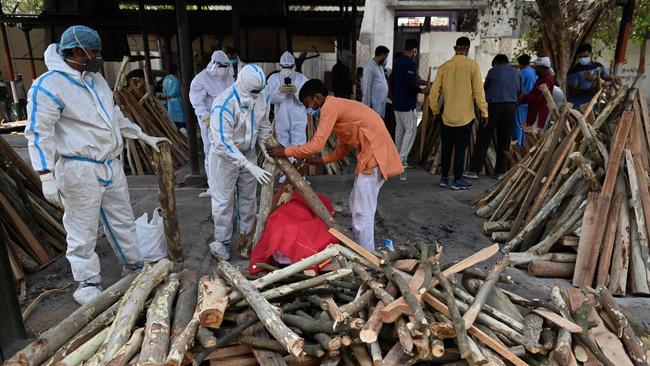Threat to returning Aussies another test of human rights

The High Court may be asked whether this unprecedented step breaches the Constitution. One argument is that it infringes the right of every citizen to re-enter Australia. However, the Constitution does not mention Australian citizenship, and it would be a long bow to suggest it implies a right of this kind. A stronger argument is that the Biosecurity Act breaches the Constitution because it undermines parliament’s law-making role. This was ceded to the Health Minister when parliament gave up its power to disallow his determinations.
The uncertainties and difficulties of mounting a High Court challenge mean Australians are also looking further afield to international law. The Coalition Fraser government ratified the International Covenant on Civil and Political Rights in 1980. In doing so, Australia undertook to protect the rights listed in the Covenant. We did so because these rights, including freedom of speech and religion, are consistent with our own values.
In 1991, Australia took the further step of permitting people to make a complaint to the UN Human Rights Committee that their rights under the Covenant have been breached. This was tested soon after when Nicholas Toonen brought a complaint that his rights were infringed by a Tasmanian law imposing jail for sexual activity between consenting adults of the same sex. The UN Human Rights Committee upheld Toonen’s claim that the law was inconsistent with the right to privacy set out in the Covenant.
This was not the end of the matter. The finding of a UN committee has no effect in Australia unless it is taken up by our governments and parliaments. This occurred in Toonen’s case when federal parliament responded by enacting the Human Rights (Sexual Conduct) Act in 1994. The law overrode the Tasmanian criminal offence by asserting the right of people to engage in “sexual conduct involving only consenting adults acting in private”.
Our citizens stuck overseas are hoping to follow the same path. Jason George and Alex Marshall are two Australians unable to return because of federal government policies. Represented by Geoffrey Robertson QC, they filed communications in March with the UN Human Rights Committee arguing that Australia is in breach of article 12 of the International Covenant on Civil and Political Rights.
Article 12 provides for freedom of movement within a nation and that people are free to leave any country. The clause states these rights may be limited to protect interests including national security, public order and public health. Article 12 also states: “No one shall be arbitrarily deprived of the right to enter his own country.” Significantly, nations are not provided the same leeway to restrict this right, whether for public health or other reasons.
The higher status of the right of re-entry reflects the fact that being able to return home is one of the most fundamental aspects of citizenship. Preventing re-entry can also cause enormous personal and financial hardship, and may cause a person to break the law of another country by overstaying their visa. As a result, the UN Human Rights Committee observed “there are few, if any, circumstances in which deprivation of the right to enter one’s own country could be reasonable”.
The filing of these matters met with an immediate response. The UN Human Rights Committee asked Australia to ensure the “prompt return to Australia” of the complainants while their case is being decided. If this occurs, they will have achieved their object of re-entering Australia, without even winning their case.
Even a victory will not settle the matter and may not produce change. The UN Human Rights Committee has no power in Australia and relies on the goodwill of our governments and leaders to redress breaches. This has often been absent, with the remedy provided in the Toonen case being exceptional.
UN bodies have made more than 50 findings that Australia has violated human rights treaties. The non-government organisation Remedy Australia has found that we have provided an adequate remedy in only six of these cases. More often, our leaders have responded with strident language that ignores the fact Australia has voluntarily signed up to these processes. For example, former foreign affairs minister Alexander Downer suggested that if a UN committee “wants to play domestic politics here in Australia, then it will end up with a bloody nose”.
The rhetoric has been toned down in recent years, but the outcome has usually been the same. Despite willingly exercising our sovereignty to sign international human rights treaties, we continue to complain that our sovereignty is compromised whenever we are found in breach. This demonstrates how, all too often, Australia advocates international human rights abroad but denies the relevance of these rights at home. Unless this changes, a finding by the UN Human Rights Committee in favour of Australians stranded overseas may do nothing to hasten their return home.
George Williams is a Deputy Vice-Chancellor and Professor of Law at the University of NSW.



Things are looking grim for the 9000 Australians stranded in India. Even if they can find a way to return home, they now face five years’ jail for doing so. The Australian government is imposing this penalty using its extraordinary powers under the Biosecurity Act. These emergency powers permit federal Health Minister Greg Hunt to determine “any requirement” and make “any direction” he feels is needed to control the spread of COVID. His determinations override every other law and cannot be disallowed by parliament. This is as close to a dictatorial power as can be found in Australian law.